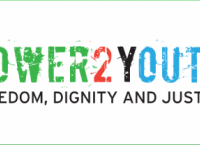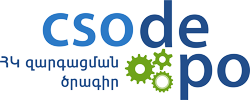
Power2Youth - տեղեկագիր (Անգլերեն)
Power2Youth - Newsletter n. 3 - March 2016
View this email in your browser
POWER2YOUTH is a three-year research project funded under the European Union's Seventh Framework Programme, which aims at offering a critical understanding of youth in the South East Mediterranean through a comprehensive interdisciplinary, multi-level and gender sensitive approach. The project has a cross-national comparative design with the case studies of Morocco, Tunisia, Egypt, Lebanon, Occupied Palestinian Territories and Turkey.
For weekly updates you can follow us on our Facebook page and Twitter account.
The main findings of Power2Youth's macro analysis: the policy brief explores the policy and institutional factors of youth exclusion and identifies their policy implications.
THE DISGUISE OF YOUTH INCLUSION IN EGYPT
To understand the extent to which youth are excluded in the Egyptian public and political spheres, this paper poses various questions: What are the strategies enacted by the Egyptian state towards youth today? Which state institutions are concerned with youth? Are these institutions developing clearcut policies for the empowerment of youth?
ASSESSING YOUTH EXCLUSION THROUGH DISCOURSE AND POLICY ANALYSIS: THE CASE OF LEBANON
To assess youth exclusion at the macro institutional level in Lebanon, this paper proposes a methodology that critically investigates discourse production on youth, as well as policy making targeting youth. Two types of discourse that dominate knowledge production on youth in Lebanon are identified and investigated: a policy-led discourse, and an academic discourse. Factors of youth exclusion are further explored through four policy sectors (employment, migration, family, spatial planning). Our findings demonstrate that Lebanese youth are constructed through fragmented lenses and policies that lack an interdisciplinary and integrated understanding of their complex, dynamic and highly differentiated livelihoods.
THE "NINJA WOMEN" OF MOROCCO
On the occasion of the Paris Conference of the project 'Power2youth', Ruba Salih discusses the new pressure on Women due to neo-liberalism policies and patriarchy and illustrates it with the "Ninja Women" case in Morocco.
INDIVIDUAL FACTORS OF YOUTH EXCLUSION/INCLUSION IN THE SOUTH-EAST MEDITERRANEAN
The 5th and 6th of April, Power2Youth partners will meet in Naples to discuss on-going research work in WP4 ‘Individual factors of youth exclusion/inclusion in the South-East Mediterranean’ (Macro Level Analysis) and the results of youth-surveys carried out in Morocco, Lebanon, Occupied Palestinian Territories and Turkey.
PUBLIC ACTION TOWARDS YOUTH IN NEO-LIBERAL MOROCCO
The paper is devoted to analysing public action toward youth in Morocco since the 90s in the context of implementation of neo-liberal reform. After providing an historical overview of youth policy in the country, it analyses relevant youth policies in four interrelated domains of public action: employment, family, migration and spatial planning policies.
YOUTH IN TUNISIA: TRAPPED BETWEEN PUBLIC CONTROL AND THE NEO-LIBERAL ECONOMY
“Youth” has been a category of public action in Tunisia ever since the country achieved its independence, although the discourse, values and policies associated with it have changed following the different phases of the country’s political economy. The paper provides an analysis of relevant youth policies in four interrelated domains of public action, with a focus on the period since the 90s: family, employment, migration and spatial planning policies.
GULF AND EU MIGRATION POLICIES AFTER THE ARAB UPRISINGS: ARAB AND TURKISH YOUTH AS A SECURITY ISSUE
The paper seeks to explore the reasons behind the persistent exclusion of young migrants from South and East Mediterranean (SEM) countries in their two main areas of destination, the Gulf States and the EU. It focuses on youth from Morocco, Tunisia, Egypt, Palestine, Lebanon and Turkey, during the key period of the Arab uprisings and their aftermath. The paper covers the period until June 2015. Its aim is two-fold: first, to describe the characteristics and institutional background of the migration policies applied to youth from the six countries, in their two main areas of destination; second, to understand the political motives underlying recent changes to these policies, following the uprisings. In a perspective of political demography informed by Foucault’s theories, migration policies are envisaged as technocratic discursive practices.










